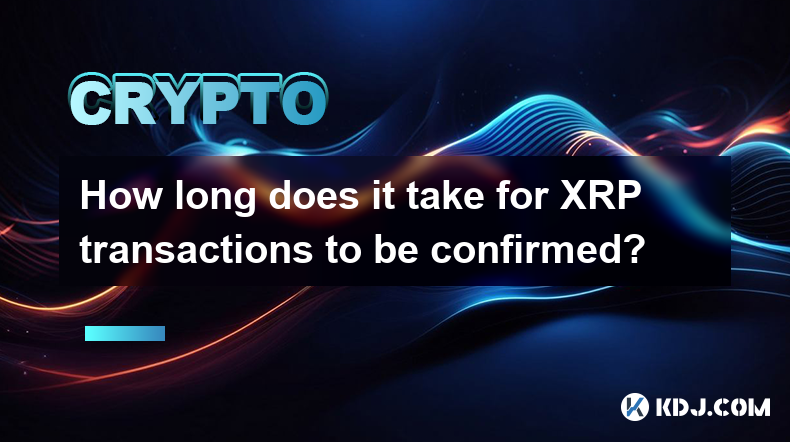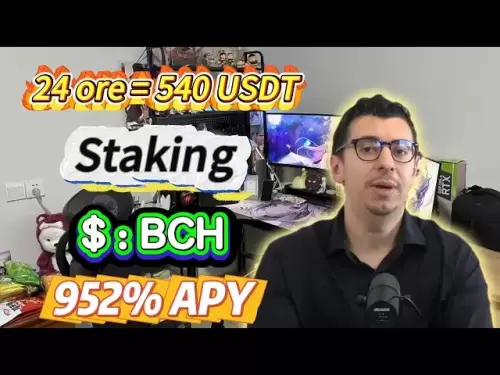-
 Bitcoin
Bitcoin $107,810.8710
-1.45% -
 Ethereum
Ethereum $2,531.4386
-1.75% -
 Tether USDt
Tether USDt $1.0000
-0.03% -
 XRP
XRP $2.2542
-0.99% -
 BNB
BNB $659.1350
-0.50% -
 Solana
Solana $148.5456
-2.40% -
 USDC
USDC $0.9999
-0.02% -
 TRON
TRON $0.2868
-0.44% -
 Dogecoin
Dogecoin $0.1666
-3.65% -
 Cardano
Cardano $0.5751
-2.36% -
 Hyperliquid
Hyperliquid $37.6845
-5.51% -
 Bitcoin Cash
Bitcoin Cash $494.9448
-0.65% -
 Sui
Sui $2.8396
-3.31% -
 Chainlink
Chainlink $13.2423
-2.59% -
 UNUS SED LEO
UNUS SED LEO $9.0482
0.02% -
 Stellar
Stellar $0.2467
-2.44% -
 Avalanche
Avalanche $17.8165
-3.63% -
 Shiba Inu
Shiba Inu $0.0...01158
-2.41% -
 Toncoin
Toncoin $2.7397
-3.42% -
 Hedera
Hedera $0.1560
-2.73% -
 Litecoin
Litecoin $85.8559
-2.34% -
 Monero
Monero $315.3710
-2.30% -
 Dai
Dai $1.0001
0.00% -
 Polkadot
Polkadot $3.3443
-2.03% -
 Ethena USDe
Ethena USDe $1.0001
0.01% -
 Bitget Token
Bitget Token $4.2888
-3.73% -
 Uniswap
Uniswap $7.3388
-1.57% -
 Aave
Aave $278.2986
-3.05% -
 Pepe
Pepe $0.0...09807
-3.67% -
 Pi
Pi $0.4563
-2.39%
How long does it take for XRP transactions to be confirmed?
XRP transactions typically confirm in 3-5 seconds on the Ripple network, thanks to its efficient consensus protocol, making it ideal for fast financial transfers.
Apr 18, 2025 at 11:50 am

How long does it take for XRP transactions to be confirmed?
The confirmation time for XRP transactions is a critical aspect for users who rely on the Ripple network for fast and efficient transfers. Understanding the factors that affect this duration can help users better plan their transactions and manage expectations. Let's delve into the specifics of XRP transaction confirmation times and the elements that influence them.
Understanding XRP Transaction Confirmation
XRP transactions are processed on the Ripple network, which is designed for speed and efficiency. The network uses a consensus protocol rather than traditional mining, which significantly reduces the time required for transaction confirmation. Unlike Bitcoin or Ethereum, where transactions can take several minutes to an hour to confirm, XRP transactions are typically much faster.
The Consensus Protocol and Its Impact
The Ripple Consensus Protocol is the backbone of the XRP Ledger's transaction processing system. This protocol involves a group of trusted validators who agree on the order and outcome of transactions. When a transaction is submitted to the network, it is broadcast to these validators. They then work together to achieve consensus, usually within a few seconds. This consensus mechanism allows XRP transactions to be confirmed much faster than on other blockchains.
Typical Confirmation Times for XRP Transactions
On average, XRP transactions are confirmed in about 3-5 seconds. This rapid confirmation time is one of the key features that make XRP attractive for use in financial applications where speed is crucial. However, the exact time can vary slightly based on network conditions and the number of transactions being processed at any given moment.
Factors Affecting XRP Transaction Confirmation Time
Several factors can influence the confirmation time of XRP transactions:
Network Congestion: If there is a high volume of transactions on the Ripple network, it may take slightly longer for your transaction to be processed. However, even during peak times, the confirmation time rarely exceeds 10 seconds.
Transaction Fee: XRP transactions have a minimum transaction fee, which is currently set at 0.00001 XRP. While this fee is very low, setting a higher fee can sometimes expedite the transaction's processing time, although this is less common on the Ripple network compared to others.
Validator Performance: The efficiency and reliability of the validators on the network can also impact confirmation times. If a significant number of validators are offline or slow, it might affect the consensus process.
How to Check XRP Transaction Confirmation
If you want to verify the confirmation status of an XRP transaction, you can follow these steps:
Visit a Blockchain Explorer: Use a reputable XRP blockchain explorer like Bithomp or XRPScan. These platforms allow you to search for your transaction using the transaction ID (TXID).
Enter the TXID: On the explorer's homepage, there will be a search bar where you can enter the TXID of your transaction.
Review the Transaction Details: Once you enter the TXID, the explorer will display detailed information about your transaction, including its status. If the transaction is confirmed, it will show as "validated" or "confirmed".
Monitor the Confirmation: You can refresh the page periodically to see if the transaction status changes from "pending" to "confirmed".
Practical Example of an XRP Transaction
To illustrate the process, let's consider a hypothetical scenario where Alice wants to send 50 XRP to Bob. Here's how the transaction would unfold:
Alice initiates the transaction from her wallet, specifying Bob's XRP address and the amount of 50 XRP.
The transaction is broadcast to the Ripple network, where it is picked up by the validators.
Validators work to achieve consensus on the transaction. This process typically takes about 3-5 seconds.
Once consensus is reached, the transaction is considered confirmed, and the 50 XRP is transferred to Bob's account.
Bob can now see the 50 XRP in his wallet, and both parties can verify the transaction's status using a blockchain explorer.
Frequently Asked Questions:
Q1: Can XRP transactions be reversed if they are confirmed?
No, once an XRP transaction is confirmed on the Ripple network, it cannot be reversed. The consensus protocol ensures that once a transaction is validated, it is considered final and immutable.
Q2: Is there a way to speed up an XRP transaction?
Generally, XRP transactions are already very fast due to the nature of the Ripple network. However, setting a higher transaction fee might help in rare cases of network congestion, though this is not a common practice on the Ripple network.
Q3: How can I ensure my XRP transactions are secure?
To ensure the security of your XRP transactions, always use reputable wallets, enable two-factor authentication (2FA) where available, and never share your private keys or seed phrases with anyone. Additionally, double-check the recipient's address before sending any XRP.
Q4: Are there any limits on the amount of XRP I can send in a single transaction?
There are no inherent limits on the amount of XRP you can send in a single transaction on the Ripple network. However, some wallets or exchanges may impose their own limits based on their policies and security measures.
Disclaimer:info@kdj.com
The information provided is not trading advice. kdj.com does not assume any responsibility for any investments made based on the information provided in this article. Cryptocurrencies are highly volatile and it is highly recommended that you invest with caution after thorough research!
If you believe that the content used on this website infringes your copyright, please contact us immediately (info@kdj.com) and we will delete it promptly.
- Bitcoin Solaris Market Launch: A New Dawn or Just Another Altcoin?
- 2025-07-08 20:30:12
- Bitcoin, Memecoin Mania, and the All-Time High Hunt: What's Next?
- 2025-07-08 20:30:12
- Byrq Coin: Scam or Savior? A Deep Dive Review
- 2025-07-08 20:50:12
- Shiba Inu's Burn Rate Bonanza: Can Crypto Burns Ignite a Price Rally?
- 2025-07-08 20:50:12
- Telekom, Injective, and Validators: A Deep Dive into Network Security and Growth
- 2025-07-08 21:10:12
- ROM: Golden Age – Half a Million Pre-Registrations and Crypto Loot!
- 2025-07-08 21:15:12
Related knowledge

How to customize USDT TRC20 mining fees? Flexible adjustment tutorial
Jun 13,2025 at 01:42am
<h3>Understanding USDT TRC20 Mining Fees</h3><p>Mining fees on the TRON (TRC20) network are essential for processing transactions. U...

USDT TRC20 transaction is stuck? Solution summary
Jun 14,2025 at 11:15pm
<h3>Understanding USDT TRC20 Transactions</h3><p>When users mention that a USDT TRC20 transaction is stuck, they typically refer to ...

How to cancel USDT TRC20 unconfirmed transactions? Operation guide
Jun 13,2025 at 11:01pm
<h3>Understanding USDT TRC20 Unconfirmed Transactions</h3><p>When dealing with USDT TRC20 transactions, it’s crucial to understand w...

How to check USDT TRC20 balance? Introduction to multiple query methods
Jun 21,2025 at 02:42am
<h3>Understanding USDT TRC20 and Its Importance</h3><p>USDT (Tether) is one of the most widely used stablecoins in the cryptocurrenc...

What to do if USDT TRC20 transfers are congested? Speed up trading skills
Jun 13,2025 at 09:56am
<h3>Understanding USDT TRC20 Transfer Congestion</h3><p>When transferring USDT TRC20, users may occasionally experience delays or co...

The relationship between USDT TRC20 and TRON chain: technical background analysis
Jun 12,2025 at 01:28pm
<h3>What is USDT TRC20?</h3><p>USDT TRC20 refers to the Tether (USDT) token issued on the TRON blockchain using the TRC-20 standard....

How to customize USDT TRC20 mining fees? Flexible adjustment tutorial
Jun 13,2025 at 01:42am
<h3>Understanding USDT TRC20 Mining Fees</h3><p>Mining fees on the TRON (TRC20) network are essential for processing transactions. U...

USDT TRC20 transaction is stuck? Solution summary
Jun 14,2025 at 11:15pm
<h3>Understanding USDT TRC20 Transactions</h3><p>When users mention that a USDT TRC20 transaction is stuck, they typically refer to ...

How to cancel USDT TRC20 unconfirmed transactions? Operation guide
Jun 13,2025 at 11:01pm
<h3>Understanding USDT TRC20 Unconfirmed Transactions</h3><p>When dealing with USDT TRC20 transactions, it’s crucial to understand w...

How to check USDT TRC20 balance? Introduction to multiple query methods
Jun 21,2025 at 02:42am
<h3>Understanding USDT TRC20 and Its Importance</h3><p>USDT (Tether) is one of the most widely used stablecoins in the cryptocurrenc...

What to do if USDT TRC20 transfers are congested? Speed up trading skills
Jun 13,2025 at 09:56am
<h3>Understanding USDT TRC20 Transfer Congestion</h3><p>When transferring USDT TRC20, users may occasionally experience delays or co...

The relationship between USDT TRC20 and TRON chain: technical background analysis
Jun 12,2025 at 01:28pm
<h3>What is USDT TRC20?</h3><p>USDT TRC20 refers to the Tether (USDT) token issued on the TRON blockchain using the TRC-20 standard....
See all articles

























































































